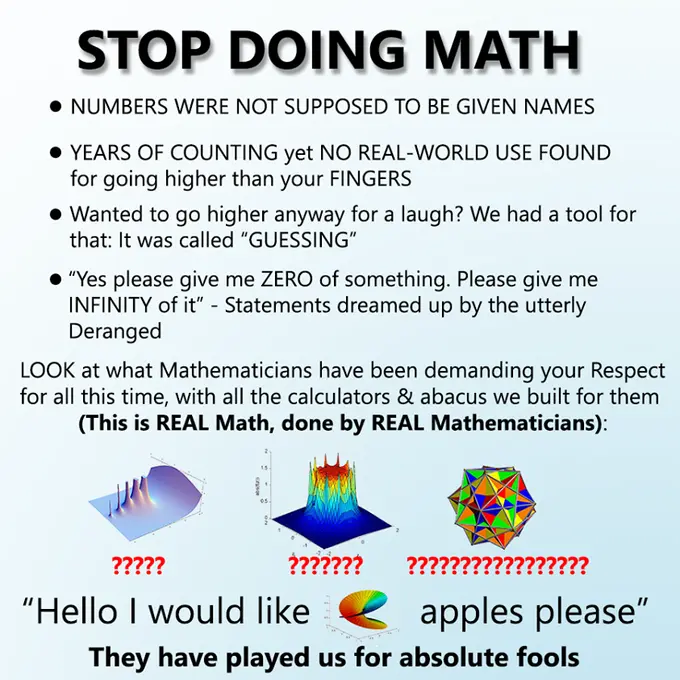Floats are only great if you deal with numbers that have no needs for precision and accuracy. Want to calculate the F cost of an a* node? Floats are good enough.
But every time I need to get any kind of accuracy, I go straight for actual decimal numbers. Unless you are in extreme scenarios, you can afford the extra 64 to 256 bits in your memory
That’s not really true and it depends on what you mean. If your decimal datatype has the same number of bits it’s not more accurate than base 2 floats. This is often hidden because many decimal implementations aren’t 64 bit but 128 bit or more. But what it can do is exactly represent base 10 numbers which is not a requirement for a lot of applications.
You can use floats everywhere where you don’t need numbers to be base 10. With base 2 floats the operations couldn’t be more accurate given the limit of 64 bits. But if you write
f64 x = 0.1;and one assumes that the computer somehow stored0.1inside x they already made a wrong assumption. 0.1 can’t be converted into a float because it’s a periodic in base 2. A very very pedantic compiler wouldn’t even let you compile that and force you to pick a value that actually can be represented.Down the rabbit hole: https://zeta.one/floats-are-not-inaccurate/
Good and bad use-cases for floats
Floats can be used everywhere where it doesn’t matter that you can’t store a 100% accurate base ten representations. For example positions and speeds in 3D games and animations, “analog” values like temperatures, speed of a vehicle, geo positions with longitude and latitude, a persons weight or heart pressure. In fact if you develop games there is no way around 32 bit floats because GPUs are f32 number crunching beasts. Modern 3D games wouldn’t be possible without all those fast f32 calculations.
You shouldn’t use binary floats if you need or expect accurate base ten calculations (addition, subtraction, multiplication, - note that divisions also introduce errors quickly in decimal types) and for dimensions that have a smallest unit that can’t be broken down, for example like money. If you need to handle money just store the amount of cents as integers and only divide by 100 in your display function.
This is exactly my point. Don’t use floats when you need to get accurate stuff, but use it when you need a “feel” for it
Don’t use floats when you need to get accurate stuff
Floats are accurate. Could you name a situation (except money) where you think floats are not accurate enough to handle it?
From time to time I see this pattern in memes, but what is the original meme / situation?
It’s my favourite format. I think the original was ‘stop doing math’

As a programmer who grew up without a FPU (Archimedes/Acorn), I have never liked float. But I thought this war had been lost a long time ago. Floats are everywhere. I’ve not done graphics for a bit, but I never saw a graphics card that took any form of fixed point. All geometry you load in is in floats. The shaders all work in floats.
Briefly ARM MCU work was non-float, but loads of those have float support now.
I mean you can tell good low level programmers because of how they feel about floats. But the battle does seam lost. There is lots of bit of technology that has taken turns I don’t like. Sometimes the market/bazaar has spoken and it’s wrong, but you still have to grudgingly go with it or everything is too difficult.
all work in floats
We even have
float16 / float8now for low-accuracy hi-throughput work.Even float4. You get +/- 0, 0.5, 1, 1.5, 2, 3, Inf, and two values for NaN.
Come to think of it, the idea of -NaN tickles me a bit. “It’s not a number, but it’s a negative not a number”.
I think you got that wrong, you got +Inf, -Inf and two NaNs, but they’re both just NaN. As you wrote signed NaN makes no sense, though technically speaking they still have a sign bit.
Right, there’s no -NaN. There are two different values of NaN. Which is why I tried to separate that clause, but maybe it wasn’t clear enough.
I know this is in jest, but if 0.1+0.2!=0.3 hasn’t caught you out at least once, then you haven’t even done any programming.
what if i add more =
IMO they should just remove the equality operator on floats.
That should really be written as the gamma function, because factorial is only defined for members of Z. /s
While we’re at it, what the hell is -0 and how does it differ from 0?
It’s the negative version






